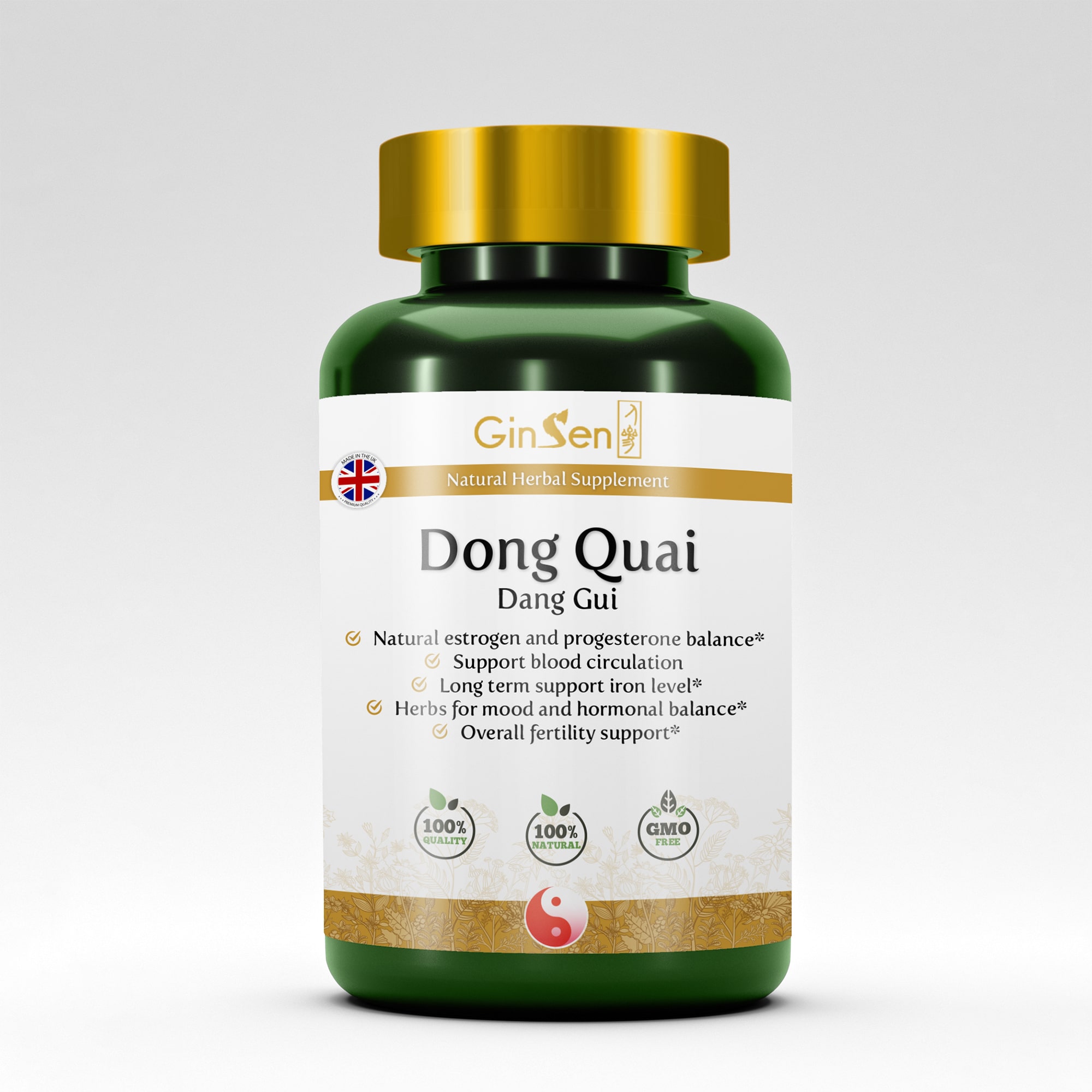
This is Why Your Period Makes You Cry More and Emotional
Do you find yourself feeling emotional or crying during period? You’re not alone. Linked to hormonal fluctuations that control ovulation and menstruation, crying during your period is a common symptom.
Sometimes referred to as premenstrual syndrome (PMS), up to 75% of women experience this varying symptoms of PMS. Often, the symptoms are somatic, such as fatigue, appetite changes, and low energy, but they can involve emotional changes, like irritability, mood swings, and anxiety. So, if you experience uncontrollable crying during period, here’s the low down on why you may be crying during period and what you can do about it.
Why Do I Cry More on My Period? Is It Normal?
Yes – it’s absolutely normal.
Just like pregnant women experience emotional fluctuations due to hormonal changes, so too can women feel emotional due to their period. While Western medicine places all the emphasis on hormonal changes, traditional Chinese medicine (TCM) takes a more holistic view. Here are 5 reasons why you may cry more during period.
TCM highlights the underlying deficiencies that cause more crying during your period. These include:

What If You Feel Very Emotional for More Than Two Weeks?
Some emotional fluctuations during your period are normal. However, if you find yourself uncontrollably crying during your period, it may be more than simple PMS.
If the list of symptoms below sounded similar to PMS, you’d be right. Premenstrual Syndrome (PMS) and Premenstrual Dysphoric Disorder (PMDD) are both related to the menstrual cycle.
Premenstrual dysphoric disorder (PMDD) is a severe form of PMS associated with emotional and physical symptoms that last for a week or two before your period. Physiologically, PMDD occurs during the luteal phase of your menstrual cycle. Unlike PMS, PMDD is a recognised medical disorder. Finding a natural treatment for PMS and PMDD can help make life manageable, relieving any severe discomfort.
| Emotional symptoms | Physical symptoms |
| Frequent mood swings, feeling sad or tearful | Breast tenderness or swelling |
| Low energy levels | Muscle and joint pain |
| Increased irritability or anger | Headaches |
| Heightened anxiety | Bloating, changes in appetite, such as overeating or specific food cravings |
| Difficulty concentrating | Sleep disturbances |
Related Read: PMDD Taking Over? Try Natural PMDD Treatment with Natural Chinese Medicine
How to Feel Better? Tips That Can Help With Crying During Period

1. Focus on Sleep
Sleep is the body’s natural recovery mechanism. PMS can affect your quality of sleep. Indeed, in one survey, women with PMS reported poorer sleep quality, mild insomnia, and unrefreshing sleep.
Sleep is when the body’s yin (cooling, nourishing energy) is restored. When yin is deficient, it can lead to an overactive yang (active, warming energy), causing restlessness, anxiety, and emotional instability.
Given these challenges, you’ve got to take proactive steps to enjoy a solid night’s sleep, allowing your body to recover. Ensuring restful sleep is vital to maintaining healthy blood and Qi levels, which in turn supports emotional stability.
Some simple tips include:
2. Acupuncture
Acupuncture is one of the best treatments for crying during periods. Why? Well, it’s got a strong evidence base for boosting your mood. The treatment works by regulating liver Qi, nourishing the blood, and balancing Yin and Yang.
A study in 2018 showed that acupuncture may provide a greater reduction in mood‐related PMS symptoms. Another review found that acupuncture showed “significant reductions in the severity of depression compared to usual care.” The underlying mechanism could be the release of endogenous opioids, changes in neurotransmitter levels (e.g., serotonin), and an overall calming effect.

How to Find The Best Acupuncturist
Not all acupuncturists have the same skills or results. Choosing the right acupuncturist is the difference between a successful implantation and failure. So, what should you look for?
1. Check Credentials and Qualifications: Ensure your acupuncturist is a member of recognised organisations. Here are GinSen, our acupuncturist are members of British Acupuncture Council (BAcC) and The Royal Society of Medicine (RCM). Membership in these bodies guarantees we adhere to high standards of practice and ethics.
2. Experience and Specialisation: Look for an acupuncturist with extensive experience, particularly in fertility and women’s health. A specialist in these areas will better understand your specific needs and challenges. At GinSen all our experts have over 30 years of experience in their respective fields.
3. Consultation and Communication: Reputable acupuncturists typically offer a free initial consultation to discuss your concerns without pressuring you into treatment. Use this opportunity to assess their communication style and determine if you feel comfortable and supported. We offer free no obligation consultation that is available worldwide.
4. Check Reviews and Success Stories: Research online reviews and look for success stories from previous patients. Positive feedback and proven outcomes can provide confidence in the acupuncturist’s ability to support your fertility journey effectively. Read our success stories here.

3. Exercise
Exercise is an underlying factor determining your mood. Just 1-hour of exercise can increase your mood and lower negative emotion symptoms like anger, confusion, fatigue, and tension. So, if you find yourself crying during your period, schedule some time at the gym. The reason behind this phenomenon could be an uptick in your serotonin levels.
A healthy dose of exercise also tires you out, increasing your chance of a good night’s sleep.
4. Recommended Supplements
In Traditional Chinese Medicine (TCM), supplements, particularly herbal formulas, can help manage crying and emotional sensitivity during your period by addressing underlying imbalances such as Qi stagnation, blood deficiency, and yin deficiency.
Soothe Cycle Blend
Soothe Cycle Blend by GinSen is an all-natural food supplement which provides relief from Premenstrual syndrome (PMS). This herbal remedy works by getting to the root cause of the issue allowing you to manage hormone imbalance peacefully without interfering with your day-to-day life.


Dong Quai
Dong Quai or Angelica sinensis has been used for centuries in Chinese Medicine. It is rich in compounds with anti-inflammatory and immune-stimulating effects, and the dong quai pills can be added to your daily routine for its many health benefits. Often coined as “women’s fertility herb” or “female ginseng” this powerful herb is used to balance female hormones and menstrual cycle. Dong Quai also has mild sedative properties for calming and relaxing the mind and body.
Menstro Support
Get back to your best self with GinSen’s Menstrual Support, the new improved formula is specially formulated based on clinical experience to address common PMS symptoms and promote overall well-being. It contains a unique blend of 10 herbs and vitamins. Based on the principles of Chinese medicine Mento Support supplements work by getting to the root cause of infertility and irregular periods issues.


5. Diet
You feel what you eat. Part of the reason for crying during menstruation might be your diet. Eating the right foods can help alleviate deficiencies and imbalances that contribute to emotional sensitivity.
For example, foods rich in Yin, such as cucumber, watermelon, or leafy greens, help soothe irritability and emotional upset. However, excess consumption of these foods can further stagnate your Qi.
On the other hand, Yang-boosting foods Warm, easy-to-digest foods like soups and stews can strengthen the spleen, which is responsible for producing and managing blood, thereby reducing anxiety, irritability, and emotional instability.

Final Thoughts
Crying during your period is a common experience linked to hormonal changes and other factors. Understanding the role of deficiencies in Chinese medicine, such as Liver Qi Stagnation and Blood Deficiency, can provide insight into why you feel more emotional. By adopting lifestyle changes like a balanced diet, exercise, acupuncture, supplements and improved sleep, you can help manage these symptoms effectively.

For more information about how Chinese Medicine can help you with crying during period, book your free consultation with our Chinese Medicine experts today





